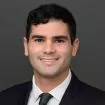The Securities Exchange Act, 15 U.S.C. §78u(d)(5), permits the Securities and Exchange Commission (the "SEC") to seek, and federal courts to grant, "any equitable relief that may be appropriate or necessary for the benefit of investors." Yet Congress did not specify which remedies fall within "equitable relief" under §78u(d)(5). In Kokesh v. SEC1 , decided in 2017, the Supreme Court of the United States held that disgorgement collected by the SEC is a "penalty" subject to the five-year statute of limitations on civil penalties under 28 U.S.C. §2462. In a footnote in the opinion, however, the Court noted that it was not resolving the question of "whether courts possess authority to order disgorgement in SEC enforcement proceedings" at all.2
In Liu v. SEC, the Supreme Court took up the question of whether disgorgement constitutes equitable relief under §78u(d)(5) and, if so, whether it may encompass an amount beyond a defendant's net profits from wrongdoing. On June 22, 2020, the Court held in an 8-1 decision that a disgorgement award not exceeding a wrongdoer's net profits and awarded to victims is equitable relief permissible under the SEC's investigatory authority in actions or proceedings brought or instituted by the SEC under the securities laws.3 The Court clarified that such disgorgement awards must be "tethered"4 to a wrongdoer's net profits (defined as revenue less legitimate business expenses).5
- Background and Procedural History
Charles Liu and his wife, Xin (Lisa) Wang, were involved in a scheme to defraud foreign nationals by soliciting nearly $27 million from foreign investors under the EB-5 Immigrant Investor Program.6 Liu circulated a private offering memorandum to investors stating that the bulk of any contributions would go toward the construction costs of a cancer-treatment center, while amounts collected from only a small administrative fee would fund legal, accounting, and administrative expenses.7 An SEC investigation revealed, however, that Liu spent almost $20 million of investor money on marketing expenses and salaries, and that he diverted a sizable portion of those funds to personal accounts and to a company he and his wife controlled.8
The SEC brought a civil action against Liu and Wang in the District Court for the Central District of California, alleging that, contrary to the terms of the offering memorandum, they misappropriated millions of dollars.9 The district court, granting the SEC's motion for summary judgment, held that Liu and Wang had violated the federal securities laws and were jointly-and-severally liable for the full amount sought by the SEC. The disgorgement amounted to the full amount raised from investors, minus the $234,899 that remained in the cancertreatment center project's corporate accounts.10 The district court, disagreeing with Liu's and Wang's objection that the disgorgement award failed to account for business expenses, found that the sum was a reasonable estimate of the profits causally connected to the violation.11
The Ninth Circuit Court of Appeals affirmed.12 The Ninth Circuit reasoned that, although the Court in Kokesh declined to reach the issue of whether the district court had authority to order disgorgement, it did hold that SEC disgorgement operates as a penalty for statute of limitations purposes. The Ninth Circuit held that the proper amount of disgorgement under Ninth Circuit authority was the entire amount of money raised minus the money paid back to investors with no regard to any business expenses incurred by the defendants.13
Liu and Wang appealed, and the Supreme Court granted certiorari to determine whether "§78u(d)(5) authorizes the SEC to seek disgorgement beyond a defendant's net profits from wrongdoing."14
- The Supreme Court's Decision
Justice Sotomayor delivered an 8-1 decision15 holding that a disgorgement award equal to or less than a wrongdoer's net profits is equitable relief permissible under §78u(d)(5). Significantly, the Court held that "courts must deduct legitimate expenses before ordering disgorgement under §78u(d)(5)."16
The Court's opinion considered whether the SEC's entitlement to seek "equitable relief" under §78u(d)(5) includes disgorgement. The opinion explained that equity practice has long authorized courts to strip wrongdoers of their ill-gotten gains, with scholars and courts using different labels for the remedy, such as "accounting" and "restitution."17 The opinion also relied upon prior Supreme Court precedent in which the Court called disgorgement an equitable remedy.18 The Court concluded that disgorgement fits squarely within the "heartland of equity."19
The Court, however, placed several important qualifiers on the SEC's power to seek disgorgement. First, echoing a concern articulated by amicus The Cato Institute that "[d]isgorgement amounts often are untethered from the underlying offense because the SEC has been given wide, unchallenged discretion when calculating the disgorgement amount,"20 the Court explained that proper disgorgement was "a remedy tethered to a wrongdoer's net unlawful profits."21 Thus, although the wrongdoer should not profit by his own wrong, he also should not be punished by "pay[ing] more than a fair compensation to the person wronged."22
The Court provided some guidance concerning the calculation of disgorgement. The Court confirmed that, under §78u(d)(5), legitimate expenses must be deducted from disgorgement awards, such as "payments to innocent third party employees and vendors."23 The Court did not determine which of Liu's specific expenses were "legitimate" but remanded the question with the guidance that Liu's lease payments and purchases of cancer-treating equipment "arguably have value independent of fueling a fraudulent scheme."24
Second, the Court addressed whether liability for disgorgement can be joint and several, cautioning that joint-and-several liability is typically not consistent with principles of equity, except for partners engaged in concerted wrongdoing.25 The Court left it for the lower courts to determine whether Liu and Wang, as a married couple engaged in the scheme together, can be found liable for profits as partners in wrongdoing or whether individual liability is required.26
Finally, the Court explained that the award should benefit the victims of the fraud, as "[t]he equitable nature of the profits remedy generally requires the SEC to return a defendant's gains to wronged investors for their benefit."27 Yet, the court declined to opine on whether, and to what extent, dispersing disgorgement awards to victims through the SEC Fair Fund program satisfies the obligation to award relief for victims.28 In response to the government's argument that the practice is justified where it is "infeasible" to distribute the funds to investors, the Court noted that, "to the extent that feasibility is relevant at all to equitable principles, we observe that lower courts are well equipped to evaluate the feasibility of returning funds to victims of fraud."29
In Justice Thomas's dissent, he argued that disgorgement was not an equitable relief within the meaning of §78u(d)(5) and has not traditionally been considered an equitable remedy.30 He also expressed concern that the majority opinion "threatens great mischief": the SEC will be able to expand its power while reducing the chances that victims will recover anything in their own actions.31
- Potential Implications
For Liu, facing an award greater than his reported net worth, the Court's decision may bring some relief. The decision, however, still leaves wide discretion to the lower courts to decide: (1) what expenses count as legitimate such that they should be deducted from the award and (2) whether joint-and-several liability can be imposed.
For others facing an SEC enforcement action, Liu will provide fodder to argue for a substantial reduction in the disgorgement amount. The SEC traditionally has sought disgorgement based on defendants' gross revenue without regard to any expenses. Now, disgorgement awards may not exceed net profit, and legitimate business expenses must be deducted from revenue to arrive at the net profit amount. In insider trading cases, for instance, defendants likely will argue that brokerage commissions and advisory fees constitute legitimate expenses. In actions against investment advisers, the investment advisers likely will argue for the deduction of overhead expenses and transaction costs.
Future litigants will grapple with several open issues about the scope of the decision. The Court curiously described the above limitations on the scope of an award as necessary to prevent an equitable remedy from turning into a "penalty,"32 potentially reopening the question of whether disgorgement awards that follow the requirements of Liu constitute "penalties" subject to the five-year statute of limitations under Kokesh. As Justice Thomas identified in his dissent, it is unclear if the Court's opinion will apply to SEC remedies of disgorgement in its administrative tribunals or just to civil actions.33 Because of the requirement that disgorgement be awarded to victims, the decision also raises interesting questions for cases where the victims cannot be as readily identified, such as insider trading and Foreign Corrupt Practices Act cases, and where the SEC disperses disgorgement awards to victims through the SEC Fair Fund program.
Footnotes
1 137 S. Ct. 1635 (2017). See also Supreme Court Holds That Five-Year Statute of Limitations Applies to SEC Disgorgement Actions, Cahill Gordon & Reindel LLP (June 12, 2017), https://www.cahill.com/publications/firm-memoranda/2017-06- 12-supreme-court-holds-that-five-year-statute-of-limitations-applies-to-sec-disgorgement-actions.
2 Id. at 1642 n.3.
3 Liu v. SEC, 140 S. Ct. 1936, 1940 (2020).
4 The Supreme Court adopted this language used in the amicus brief submitted by The Cato Institute. See Brief For Amicus Curiae Cato Institute In Support Of Petitioners, at 11. Bradley J. Bondi of Cahill Gordon & Reindel LLP was Counsel of Record for the brief.
5 See Liu, 140 S. Ct. at 1943, 1950.
6 Id. at 1941. The EB-5 Program, administered by the United States Citizenship and Immigration Services, allows noncitizens to apply for permanent residence in the United States by investing in approved commercial enterprises.
7 Liu, 140 S. Ct. at 1941.
8 Id. at 1941-42.
9 SEC v. Liu, 262 F. Supp. 3d 957 (C.D. Cal. 2017).
10 Id. at 975-76. The district court ruled that a "disgorgement calculation requires only a 'reasonable approximation of profits causally connected to the violation.'" Id. (citation omitted).
11 Id. at 975-76.
12 SEC v. Liu, 754 Fed. App'x 505 (9th Cir. 2018).
13 See Liu, 754 Fed. App'x at 509 (citing SEC v. JT Wallenbrock & Assocs., 440 F.3d 1109, 1114 (9th Cir. 2006)).
14 Liu, 140 S. Ct. at 1942.
15 Justice Thomas dissented.
16 Liu, 140 S. Ct. at 1950.
17 Id. at 1943 ("No matter the label, this 'profit-based measure of unjust enrichment[]' reflected a foundational principle: '[I]t would be inequitable that [a wrongdoer] should make a profit out of his own wrong[.]" (internal citation omitted)).
18 See id. at 1943 n.2 (citing Feltner v. Columbia Pictures Television, Inc., 523 U.S. 340, 352 (1998)).
19 Id. at 1943.
20 Brief For Amicus Curiae Cato Institute In Support Of Petitioners, at 11.
21 Liu, 140 S. Ct. at 1943 (emphasis added).
22 Id. at 1943 (quoting Tilghman v. Proctor, 125 U.S. 136, 145-46 (1888)).
23 Id. at 1950 (citation omitted).
24 Liu, 140 S. Ct. at 1950.
25 Id. at 1945, 1949.
26 Id. at 1949.
27 Id. at 1947-49.
28 Id. at 1948-49.
29 Id. at 1948 n.5 (citation omitted); see also id. at 1949 ("If [an order directing proceeds to the Treasury] is entered on remand, the lower courts may evaluate in the first instance whether that order would indeed be for the benefit of investors as required by §78(u)(d)(5) and consistent with equitable principles").
30 Id. at 1950-51 (Thomas, J., dissenting).
31 Id. at 1953 (Thomas, J., dissenting).
32 Liu, 140 S. Ct. at 1943, 1946, 1949.
33 Id. at 1954 (Thomas, J., dissenting).
Originally published 27 July 2020.
The content of this article is intended to provide a general guide to the subject matter. Specialist advice should be sought about your specific circumstances.




